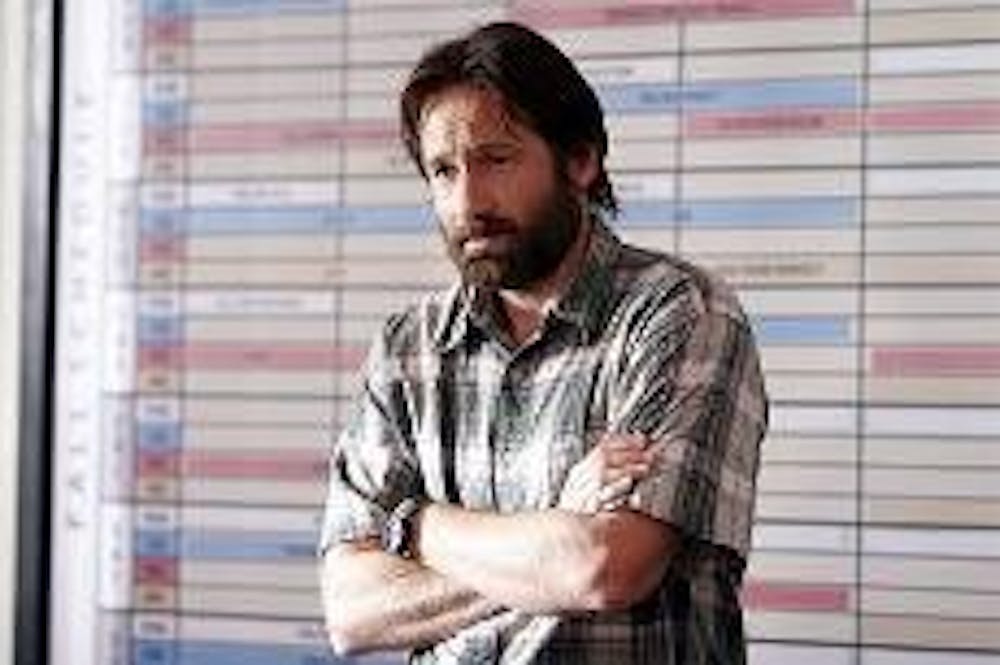As a recurring director for the ill-fated series "Freaks and Geeks" and "Undeclared," Jake Kasdan knows how it feels to sacrifice his creative vision to the will of a consumer-hungry media conglomerate. In his first film since "Orange County," Kasdan returns with a wildly entertaining satire of the grueling process television pilots endure, from the casting period to being acquired by a network.
"The TV Set" uses campy acting and a razor sharp script to present the viewer with a new way to observe the television industry, conjuring up laughs while simultaneously exposing disturbing truths of the business.
David Duchovny stars as Mike, an idealistic writer whose pilot, "The Wexler Chronicles," is jockeying with other television programs for a spot on Panda Productions' prime-time lineup. Sigourney Weaver co-stars as Lenny, a Panda executive plagued with a vicious case of acid reflux and a delusional conception of reality.
Lenny, concerned with the dark thematic elements of Mike's script, steps in and urges Mike to rewrite segments of his script in order to make "The Wexler Chronicles" more audience-friendly.
In an elongated duel of tug of war, Lenny declares that if Mike does not cut out the gloomy components of the script, the pilot will never see the light of day, leaving Mike stuck with an ultimatum: to please the studio's executives by caving in and whitewashing his script or to hold his ground and refuse to forfeit his artistic integrity.
Uncoiling in a bubbly, quick-paced fashion, "The TV Set" is a thoroughly enjoyable 90-minute trip through sunny, corrupt Hollywood with a superb ensemble cast that compensates for the film's apathetic direction. Making appearances is a wide range of actors, from the brilliant Judy Greer to BBC's "The Office" star, Lucy Davis.
The showcase performance is undeniably Weaver's, whose turn as a media executive diva is loaded with one-liners such as, "That's so blue-state." Weaver's uproarious scenery chewing often distracts the viewer from detecting the film's flaws.
"The TV Set" sets out with the objective to portray the dishonest, artless and vindictive nature of the television business and how simple it is for one to sell out. Unfortunately, the numerous jokes and one-liners distract viewers from this intent, and the film does not become noticeably dark until the very end.
At the start of the film, Mike boldly shouts: "I'd rather not make the show at all than make it and make it bad. I'd just be making the world more mediocre."
After chuckling away as Mike comically bought in the allure of show business, one finally realizes how serious an issue this is. Even though the ending feels at first abrupt and somewhat unsatisfying, it is an effective slap to the face of the American media.
"The TV Set" serves as a reminder that while the American public is wary of smart, challenging television, mindless garbage such as Panda Productions' "Slut Wars" will continue to ravage the airwaves. After all, there's no need to make the world any more mediocre.





